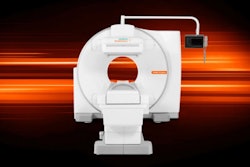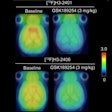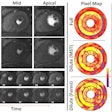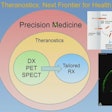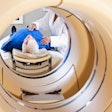Dear AuntMinnie Member,
The debate about "overdiagnosis" in screening programs got turned up a notch this week thanks to a research letter published in JAMA Internal Medicine claiming that many patients would forgo some screening exams if they knew how common overdiagnosis is.
The letter explains the results of a recent survey of several hundred U.S. patients that assessed how much individuals knew about the risk of overdiagnosis, as well as their attitudes toward starting or continuing with screening once they were informed of overdiagnosis rates.
The researchers claim that fewer than 10% of those surveyed said their doctor had discussed overdiagnosis with them, while nearly 70% said they would not start a screening program if overdiagnosis rates were more than 10 cases per one life saved.
The study, accompanied by a commentary from overdiagnosis pundit Dr. H. Gilbert Welch, appears to be an effort to outflank backers of screening exams by claiming to find public support for more judicious use of screening. Many questions remain about both the current study's data and how the questions were structured, as well as whether the results can be generalized to a larger population.
Read more by clicking here, or visit our Women's Imaging Digital Community at women.auntminnie.com.
PiB-PET links sleep to Alzheimer's
Could there be a link between poor sleep patterns and the development of Alzheimer's disease? That's the tantalizing question posed by a new study we're featuring in our Molecular Imaging Digital Community.
Researchers from Johns Hopkins University used PET scans with the radiopharmaceutical Pittsburgh Compound B (PiB) to analyze 70 older adults from a longitudinal aging study. The scans picked up deposits of beta amyloid, which has long been associated with Alzheimer's. Patients were also asked to report their sleep habits.
The researchers found that evidence of beta-amyloid deposition was higher in individuals who slept less or had poorer sleep quality. While a definitive link was not established, it could be a sign that efforts to address sleep deprivation could stave off the development of Alzheimer's.
Read more by clicking here, or visit our Molecular Imaging Digital Community at molecular.auntminnie.com.
Ambient light and mobile displays
Finally, the rising use of mobile displays creates the possibility that physicians can use the new tools to review medical images wherever and whenever they want.
But just because you can doesn't mean you should. A new study in our Advanced Visualization Digital Community indicates that bright ambient lighting conditions can quickly lead to worsening diagnostic performance for physicians using mobile displays.
Researchers from the U.S. Food and Drug Administration had readers attempt to discern test patterns on two mobile displays in five different ambient lighting conditions. Perhaps unsurprisingly, they found that reader performance began deteriorating at levels brighter than the average office (perhaps confirming why radiologists read images in dark rooms).
Learn more about the study by clicking here, or visit our Advanced Visualization Digital Community at av.auntminnie.com.








